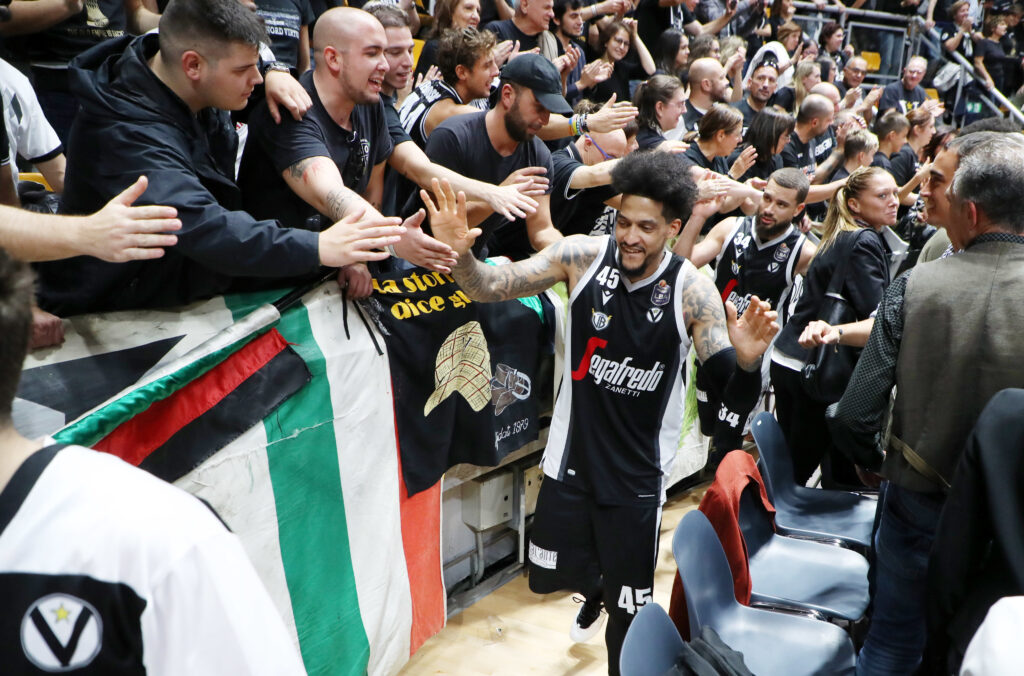Government restrictions on gambling advertising and sponsorship continue to have a profound impact on brand partnerships across numerous European markets.
As the UK braces for legislation that will come into force in the coming years (you can read a relevant white paper published by ESA in May 2023), sponsors and rights holders in other countries have already demonstrated resilience by evolving and pivoting to keep the industry buoyant.
In this special guest blog by ESA Member RTR Sports Marketing, we hear the view from Italy. You can also read the view from Spain.

It is 1946, the very first post-war years, when the first legal bet linked to the world of sport arrives in Italy. It is called Totocalcio and what punters are asked to do is to guess the results of certain matches in the Italian Serie A.
It is played at bars or tobacconists and quickly becomes one of the favourite pastimes of Italians, as well as a true piece of popular culture. Everyone’s dream, up until the 1990s, is to make ‘thirteen’, that is, to guess the correct results of all the matches on the schedina, the small sheet of pre-printed paper that contains all the day’s matches.
Totocalcio is the beginning of a great novel, all Italian, involving football, betting, taxation and, later, sponsorship.
These four worlds collide above all, and as a matter of course, in the game of football, which still collects 73 per cent of the total sports betting in the Italian peninsula, totalling an estimated €11.8billion in 2021. In second place is tennis, with a 14.8 per cent share.
Of the original Totocalcio, the state immediately understands the extraordinary economic possibilities. Regulated more or less in the same way as tobacco and spirits, part of the money made with the schedina end up directly in the treasury’s coffers: important oxygen in a fast-growing country with a finally galloping economy.
The story towards modernity is a long one, but there are two stages in which the big players in the betting world begin to broaden their shoulders and gain the status and power they possess today.
The first is the liberalisation of betting with licensed operators during the FIFA World Cup 1998 in France, and the second is the famous Directorial Decree 128, which officially gave the green light to betting that could be received by telephone and, above all, on the web.
Betting, football, prohibition
It is May 2002 and the final boom of the industry is recorded, with bookmakers exploiting the digital wave and the explosive and rapid expansion of the internet with great creativity. The big betting operators become better known, more powerful and richer than ever.
The industry – thanks also to the introduction of virtual bookmaking in 2013 – is so well established that it easily enters the world of sports sponsorships: Bwin on the Milan shirt, Eurobet on the Palermo shirt of a very young Dybala, and even the naming partnership of Serie B are just a few examples of a thriving and expanding market.
The sudden and definitive stop comes in August 2018 with the Dignity Decree signed by the first Conte government. Among the measures of the decree is the ban on betting and betting companies engaging in communication, promotion and advertising activities within television broadcasts, sports events, print media or radio.
The rule reads: “As of 1 January 2019, the prohibition referred to in this paragraph also applies to sponsorship of events, activities, shows, programmes, products or services and to all other forms of communication with promotional content, including visual and acoustic quotations and the overlaying of the name, brand, symbols, activities or products the advertising of which, pursuant to this article, is prohibited.”
Underlying the decision is the decision to combat the growing gambling problem in the country, but the decree falls like a tsunami on a world of football and sport in general that is now inextricably linked to betting.
According to data published by Calcio e Finanza and considering only the world of football, the stop imposed by the Dignity Decree causes damage and lost revenue of more than €200million per year if one also considers advertising campaigns on traditional media.
The football world is rebelling, although the protest remains in vain. The rule, say the clubs, regulates what happens inside the country, but does not take into account that outside national borders betting sponsorships continue to progress.
While the big names in betting cannot sponsor Inter, Milan, Juventus and so on, television and online viewers can see LaLiga, Premier League and other supranational leagues with the shirt sponsors of this or that bookie clearly visible.
Not only that, the teams continue: the move weakens Italian football because the money that could have been destined to strengthen Italian teams now goes to European competitors, which become stronger and more aggressive. The effectiveness of the Dignity Decree, although animated by a correct spirit, is doubtful. Prosaically, while advertising betting is not permitted, it is absolutely permissible to bet. Research conducted in markets where the promotion of betting is permitted and in others where it is prohibited shows no difference in trends.
On the other hand, while it is true that Italians continue to bet, especially on football, not one euro goes to sport. It is a different story for the state’s coffers, which will collect more than €303m from the almost €12billion played in 2021.
In the dark years of COVID-19, Minister of Sport Spadafora tries to remedy this with the ‘Save Sport’ levy, which through a levy of 0.5% from the amount of bets – almost €90m redistributed among the clubs –tries to plug a seemingly irremediable haemorrhage at a time when, with empty stadiums and stagnant championships, the sports sector is struggling to stay alive.
The situation today
In December 2022, Italian Sports Minister Andrea Abodi and FIGC President Gabriele Gravina begin work on a major change to the situation.
The clubs are ready with open arms to welcome the bookmakers back among their jersey sponsors and so is the government, which now talks about “the right to bet for the benefit of the organisers of sporting events”, proposing to make the topic part of the “competitiveness package”.
Abodi’s plan, shared with Federcalcio and Lega, in addition to the return of betting agencies to the list of ‘lawful’ sponsorships, foresees in the immediate future the inclusion of the possibility to sell TV rights also in Italy with five-year contracts and not only three-year ones. A move considered strategic to attract greater interest from broadcasters.

For the overcoming of the sponsorship ban for betting companies, the timescale is slightly longer, although Minister Abodi himself wants to speed things up in the short term. The aim is to sanction a “right to bet” with a levy on the profits of betting agencies, destined for the football movement and beyond.
Federcalcio insists in fact on a 1% levy on the money played in bets to go to clubs and federations, a step that is not easy because the previous formulation already triggered the rebellion of the concessionaires with so many appeals to the TAR with different outcomes.
In concrete terms the situation is currently at a standstill and pragmatically no major betting player can sponsor a team of any series or nature in Italy. Football, the sport most affected by the measure both for economic reasons and for reasons of competitiveness towards the outside world, will necessarily pave the way and be the leading force in this transformation.
Finally, the betting world is starting to get nervous about another sector, that of cryptocurrencies, which is still poorly regulated and which, on the other hand, sponsors freely, even in dubious cases such as the notorious Inter-Digitalbits affair.
Some countries have begun to place limits on sponsorship even of crypto, especially after some major industry crashes, and it will have to be seen whether – again – this type of regulation will serve more to save face or the market.
In conclusion
It seems evident today that sports betting sponsorship must have a supranational and at least European structure. If decrees, regulations and laws work well within the borders of one country, the size and popularity of sports such as football, Formula 1 and tennis go far beyond the thresholds of one nation.
It is therefore pointless to prohibit a betting player from sponsoring AC Milan, if he can then sponsor Bayern Munich and still be in all the newspapers, broadcasts and guaranteed live coverage of one of the world’s most prestigious clubs.
The history of sponsorship teaches us that blanket bans not only do not work but also lead to unrest and discontent in the industry and among properties. Famous in the world of sponsorship is the era of the abolition of tobacco sponsorship for racing cars and motorbikes depending on the territories in which they were to be raced, with teams and drivers changing liveries at each circuit to comply with territorial regulations, only to be seen by the same families on the same television sets.
A truly global sport requires global rules to safeguard competitiveness, homogeneity and comparable results. That, surely, is a good bet.

